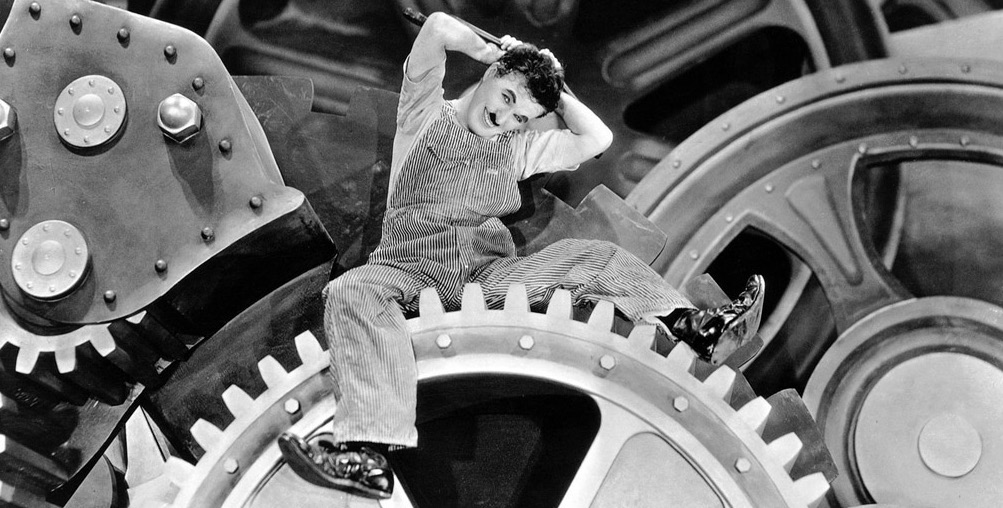The little tramp of the left
Charlie Chaplin was not only a comic genius but a citizen of the world and progressive campaigner. And his political story has surprising resonances today, as Richard Carr explains For much of the interwar period the left was awash with ideas,...
Charlie Chaplin was not only a comic genius but a citizen of the world and progressive campaigner. And his political story has surprising resonances today, as Richard Carr explains
For much of the interwar period the left was awash with ideas, but often far from actual power. Barring two short-lived Labour administrations, Britain was presided over by Conservative-dominated governments for the entirety of the period that separated the world wars. Abroad, infamously, much of continental Europe tilted far more to the right than this – with horrific consequences. And across the Atlantic, the Republican party held the White House, Senate and House of Representatives from 1921 until the advent of the Roosevelt era. Even after the steady advances seen for Labour at the June 2017 general election, this pattern is not exactly unfamiliar to modern audiences.
One major witness to this period of crisis was the director and actor Charlie Chaplin. The South London-born comedian made a series of films with a political tinge, and, to much acclaim, played an impoverished tramp at the margins of free market America. But Chaplin’s interest in the world around him was expressed far beyond world-class films such as City Lights or Modern Times.
This was readily understood at the time. Indeed, Winston Churchill once remarked to Charlie Chaplin that he would make a ‘good Labour MP,’ whilst future Labour party chair Harold Laski and its leader George Lansbury both declared Chaplin to be a socialist. There was much evidence for this. After all, the Hollywood star had hobnobbed with RamsayMacDonald at Chequers in the 1930s, and, 20 years later, returned to the UK in the 1950s to make a speech praising Britain’s new National Health Service. Throughout his life Chaplin had much in common with the British left, and often popped up to make pointed progressive interventions – including, in the US, campaigning for candidates such as Upton Sinclair and Henry Wallace (both close to constituting the Bernie Sanders of their day). Whether it be attempting to enlist the future minister John Strachey to write a script for one of his movies, or chatting with Jennie Lee in the House of Commons, Charlie Chaplin was both generally sympathetic to Labour and someone who liked to surround himself with progressive thinkers.
Yet Chaplin was not just a left leaning ‘luvvie’, but someone who sat down and thought about capitalism, the problems it created, and how to solve them. In policy terms, he was an early Jeremy Corbyn and would have fitted well on Corbyn and John McDonnell’s Economic Advisory Committee. For instance, Chaplin urged British and American governments to nationalise the postal and railway services after they had been privatised in the post-first world war period. He backed a form of ‘people’s quantitative easing’ to be used to cancel war debt, boost wages, and invest in infrastructure. And through discussions with John Maynard Keynes in the wake of the Wall Street Crash, he supported the model of counter-cyclical public investment that the Cambridge economist would become famous for. Chaplin even advocated for higher levels of taxation, particularly on income, albeit all the while being an inveterate tax avoider who was forced to repay $1m in back taxes (about $14m today) under the threat of jail.
This progressive economic agenda led many on the American right to dub Chaplin a communist sympathiser – not quite ‘the man who hated Britain,’ but certainly an ‘un-American.’ More accurately, he was a leftwing contrarian who liked an argument and wouldn’t back down easily. On the positive side of the ledger, he supported Gandhi’s non-violent resistance policies in India – against the views of his friend Winston Churchill. In terms of the negative, his 1942 praise for Stalin’s purges and concurrent claim that his response to a Communist takeover of the world would be ‘so what?’ was clearly mad optics, but were not really representative of Chaplin’s generally more nuanced views.
In any event, Chaplin’s life story simply did not stack up with a blanket anti-capitalist agenda. After all, Chaplin was a man who had come from nothing. He spent a month of his childhood in a Victorian workhouse, and was often separated from a mother who spent years in various institutions for the mentally unstable. There was no father to pick up the slack – Charles Chaplin Snr having drunk himself to death at the age of 37. And yet from this disadvantaged background Chaplin rose to become a pioneer in a particular art form, and made tens of millions of dollars whilst doing so. He was an advert for capitalism – not its antithesis.
It is however his relationship with fascism that most defines him, and despite going on to make the Hitler-bashing film The Great Dictator, there were always two sides to this coin. The difficulty for Chaplin, like many on the Anglo-American left, was that for all their obvious faults fascist regimes had seemed to conquer that most tricky of interwar foes – mass unemployment. In 1928 Chaplin wrote that Benito Mussolini was one of his ‘men of the year’ because ‘he has taken a great nation and put it to work.’ Three years later, promoting his masterpiece City Lights, Chaplin visited fascist Italy and claimed that he was ‘impressed with its atmosphere…hope and desire seemed in the air.’ And when meeting Oswald Mosley in 1931 – after Mosley’s resignation from the Labour government and a year away from launching the British Union of Fascists – Chaplin found that their brands of economic intervention had much in common. He later wrote that the future fascist was ‘one of the most promising young men in English politics.’
Adolf Hitler was certainly a game-changer however. Although not Jewish himself, both Chaplin’s half-brother and 1930s partner Paulette Goddard had Jewish fathers. The Nazi press regularly printed (false) accusations that Chaplin was a ‘Jewish tumbler’ and his films were promptly banned under the Third Reich. More generally, as a self-proclaimed ‘citizen of the world’ – decades before Theresa May denounced the concept – Chaplin never understood nationalism even in its diluted democratic forms. He never became an American citizen (which allowed for his de-facto expulsion from the country in 1952) and only maintained a British passport as a matter of necessity. As such, a regime built on blood, race and soil was always inexplicable to him.
The question was, however, what should he do about it? This was not easy for many on the left. Under Clement Attlee’s leadership the Labour party moved to a more muscular foreign policy than that of pacifist George Lansbury, but the 1935 Tory landslide meant Stanley Baldwin and then Neville Chamberlain held the keys to Downing Street. In the US Roosevelt may have been in the White House, but the passage of successive Neutrality Acts had moved that country further towards isolationism. To his eternal credit, Chaplin swam against this prevailing tide. One of the startling new findings of my biography – based on newly unearthed sources from the National Archives – is the degree to which officialdom sought to stop Chaplin making The Great Dictator. Yet when Chamberlain’s government ordered the British Consulate in California to try and dissuade Chaplin from making the film, and warned him they would lean on the British film censors to ban it even if it was made, Chaplin ploughed ahead anyway. This was a big financial risk, and a brave measure to take. Clement Attlee and Charlie Chaplin thereby formed two sides of a pincer movement the British left exerted on the pro-appeasement forces then gripping the western world. In this regard, morality trumped pragmatism.
Events eventually moved Chaplin’s way and, in this sense again, he was rather like Jeremy Corbyn. Personally, for all its significance, I am not totally convinced June 2017 re-writes all the old electoral rules. Gordon Brown’s 2010 seats on Michael Howard’s 2005 gains is not an administration on its own. But Chaplin, like Corbyn, understood the power of ideas (work, freedom, dignity) and of advocating for big concepts. Labour has always been at its best when it articulates a bold message fluently. It is sometimes forgotten that New Labour won in 1997 on a platform of restoring our public services after years of under investment. This is largely Corbyn’s position too. But just as Chaplin didn’t have to win any elections, nor has Jeremy Corbyn yet done so. Chaplin was terrible at reaching out to centrist Democrats and generally ploughed his own ideological path – to his own later cost. Partly through his own actions, and partly through others, Corbyn has mirrored this model. But if, like the end of Chaplin’s City Lights, we go on to see a heartfelt reunion of the estranged protagonists– then all may yet be possible.
Charlie Chaplin: A Political Biography from Victorian Britain to Modern America by Richard Carr is published by Routledge

